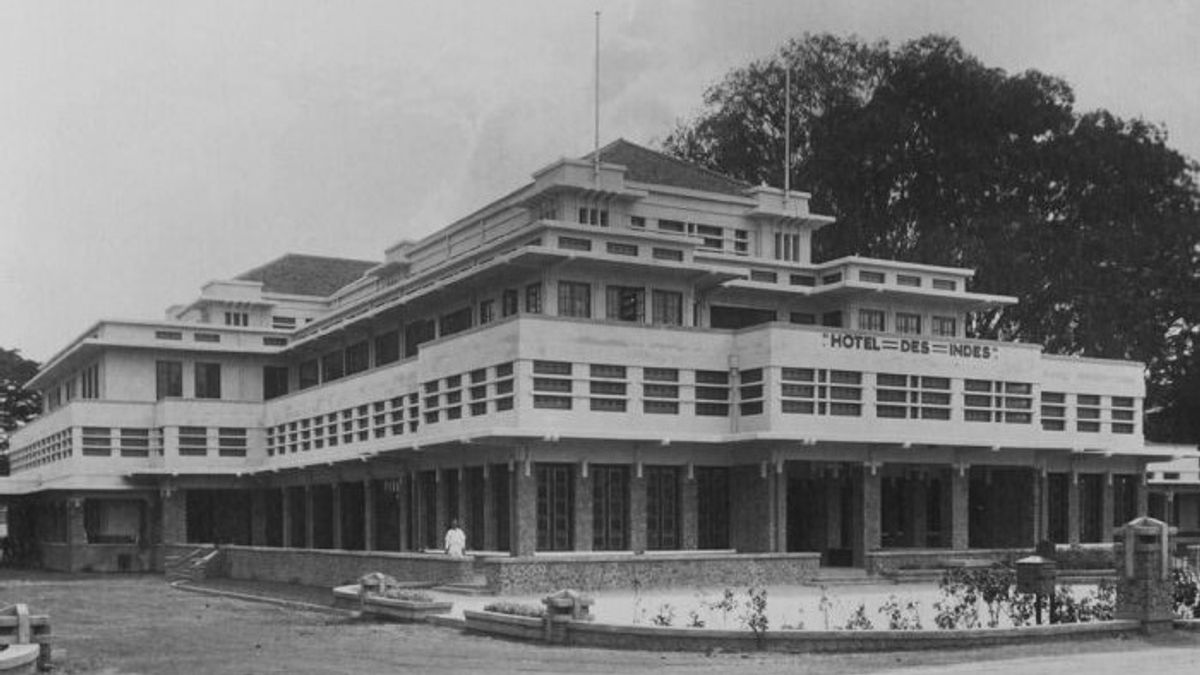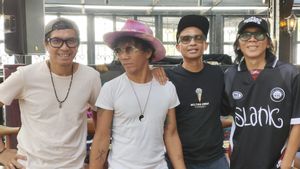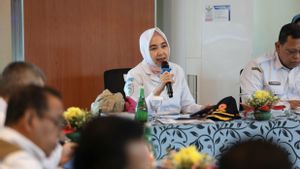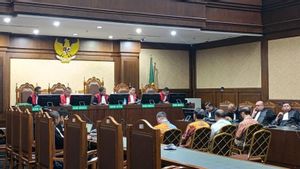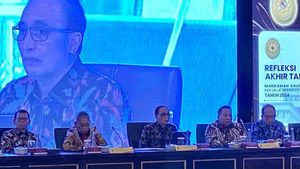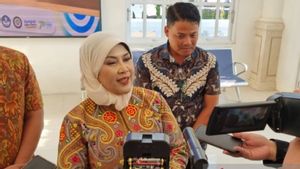JAKARTA - During the Dutch colonial period, Jakarta was recorded to have had a hotel that was so luxurious that many people praised it. Because of its luxury, the hotel was nicknamed "The Finest Hotel In The East". Hotel Des Indes is the name. Guruh Soekarnoputra even composed a very charming song about Hotel Des Indes.
For overseas travelers, Hotel Des Indes is a lasting impression. The famous British anthropologist Alfred Russel Wallace once expressed his admiration for this hotel in the Harmoni area, Central Jakarta.
Through a masterpiece entitled The Malay Archipelago (1869), Wallace recounts his experience of visiting Batavia in 1861. At that time, Wallace was staying at the Hotel Des Indes. A few days in Des Indes, Wallace said he was comfortable. He praised how the hotel provides a sitting area and the bed opens onto the veranda.
"Visitors can also enjoy coffee and drink tea in the morning ... In the middle of the building there is a rectangular open space and a building stands there," said Wallace.
“The building contains a number of bathrooms with marble walls that are ready to use. There is also a delicious table d'hote dish at 10am and dinner at 6pm. The price charged every day for this dish is not that expensive. "
Not only Wallace. A Dutch soldier who came to the Dutch East Indies in the early 20th century, HCC Clockener Bousson also talked about his memories of Hotel Des Indes. In the book Batavia Awal 20 Century (2004), Bousson tells of his conversation with a head conductor of the tram he was riding.
The chief conductor said that, although it is considered luxurious and prestigious, the Hotel Des Indes price is actually relatively cheap. “In Singapore, I have to pay 17 golden per day. while prices in Des Indes vary per day. Depending on the type and size of the room. However, the price is only between 6-10 guilders and that includes food, ”said Bousson.

Another compliment was also expressed by a foreign newspaper, Japan Chronicle, in one of its 1907 issues. They were the ones who named Des Indes as the best hotel in the east. One of the main highlights was also given to Johan Matinus Ganvoort, Manager of Hotel Des Indes.
Ganvoort is said to have managed Des Indes very well. All Des Indes facilities are even said to be equivalent to luxury hotels in New York and London.
"Likewise with the staff, including the foremen and jongens (jongos) who serve and are prepared in various languages: French, English, German. So it is not surprising that those (Dutch) who have been to Java seem to 'forget' and do not want to return to Europe, ”wrote Achmad Sunjayadi in the book Pawisata in the Dutch East Indies 1891-1942 (2019).
Interestingly, Achmad also did not forget to quote the opinion of a traveler named Thomas Reid. The traveler stayed in Des Indes in the early 20th century and was immediately struck by the service he received during his stay.
“(Des Indes) has something to learn in terms of guest accommodation, general cleanliness and fairness of prices. However, nothing can beat the politeness and attention of the management of the Hotel Des Indes in Batavia. And Mr. Gantvoort, the polite manager of Hotel Des Indes, ”said Achmad.
The establishment of Des Indes
Hotel Des Indes stands on land owned by the Governor General of the Dutch East Indies Reiner de Klerk (1777-1780). When De Klerk sold his land in 1774, it changed hands to several Dutch officials. Slowly, in 1829 a hotel appeared for the first time on the former De Klerk estate.
At that time, the name of the hotel was still Hotel Chaulan. The name is taken from the last name of the owner, Surleon Antoine Chaulan, a French national. Feeling less hockey, the name was changed to Hotel de Provence in 1835, before changing its name to Het Rotterdamsch Hotel (Hotel Rotterdam) in 1851.
Later, a year later, Auguste Emile Wijss bought Hotel Rotterdam from Chaulan's hands for 40 thousand guilders. It was only in 1856, in the hands of Wijss, that Hotel Des Indes was born. However, for no apparent reason, Wijss sold it to Louis Cressonnier. Cressonier became the owner of the hotel until 1880. Finally, ownership of the hotel changed hands again. This time to Jacob Lugt.
Despite changing hands several times, Des Indes has never lost strength in service. Fadly Rahman, in the book Rijsttafel: Culinary Culture in Indonesia during the Colonial Period 1870-1942 (2016) explains how rijsttafel is a common thread that continues to raise the prestige of Des Indes. The luxury hotel is even called the pioneer in serving luxury rijsttafel food.
As we have written in the article Rijsttafel: When Exclusivity and Luxury Boosts Dutch East Indies Tourism. The term rijsttafel is simply known as "rice table". In its full definition, rijsttafel is the concept of banquets or serving a complete mix of Indonesian and European-style meals. In stages, the eating procession begins with an appetizer, main menu, and ends with a dessert.

Uniquely, until the third decade of the 20th century, Hotel Des Indes is still considered the hotel with the best rijsttafel serving. "The luxurious and alluring service is the main attraction for guests who enjoy the dining atmosphere in the hotel dining room," added Fadly.
Hotel Des Indes has also witnessed various historical events, especially in the post-independence period. In 1950, for example. Des Indes was once the place where President Soekarno introduced the symbol of the state to all Indonesian people.
However, Des Indes' heyday ended in the early 1970s. The hotel, which used to be occupied by the diplomatic corps and foreign guests, was dismantled and turned into a shopping center for Duta Merlin. The hotel, which many wanted to become a cultural heritage, was subject to government policy at that time.
There are not many ways to remember Des Indes today. Through a series of old photos, perhaps. Or with the famous song from Guruh Soekarnoputra. In the lyrics of the memorial song, Guruh emphasized how Des Indes was once widely known as a place for feudal and priyayi people to dance, spreading joy.
Starry afternoon tempo above the city
Koe pigi to Hotel Des Indes
Inside there was a party soeatoe
Sajang koe come alone ...
The English, Chinese, Japanese, Arabic, and French versions are automatically generated by the AI. So there may still be inaccuracies in translating, please always see Indonesian as our main language. (system supported by DigitalSiber.id)
